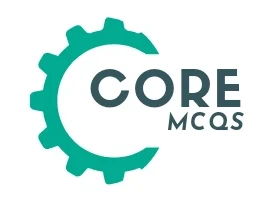Chemistry Chapter 4 Entry Test MCQs
51. Dipole moments of Chlorine derivatives of methane are as CH3Cl > CH2Cl2 > CHCl3 > CCl4 What will be correct order of their boiling points.
a. CCl4 > CH3Cl > CH2Cl2 > CHCl3
b. CH3Cl > CH2Cl2 > CHCl3 > CCl4
c. CCl4 > CHCl3 > CH2Cl2 > CH3Cl
d. CH2Cl2 > CH3Cl > CHCl3 > CCl4
52. Which one of the following is a solid with lowest melting point?
a. C6H12O6
b. NaCl
c. Fe
d. I2
53. Water can boil at
a. 120°C
b. 25°C
c. 100°C
d. All of these
54. The correct order of enthalpy changes of sublimation (ΔHS), Vaporization(ΔHV) and Fusion(ΔHF) is
a. ΔHS > ΔHV > ΔHF
b. ΔHS > ΔHF > ΔHV
c. ΔHS > ΔHV > ΔHF
d. ΔHF > ΔHS > ΔHV
55. As a substance moves from a solid to a liquid, all of the following changes occur except:
a. Intermolecular force become weaker
b. Molecules become more disordered
c. Molecules become more separated
d. K.E of the molecules decreases
56. During which process the particles come so close to each other that the empty spaces between them are minimum
a. Condensation
b. Evaporation
c. Fusion
d. Sublimation
57. Steam causes more severe burn than the boiling water because it possesses
a. Latent heat of vaporization
b. Latent heat of fusion
c. Latent heat of solution
d. Latent heat of sublimation
58. If heat is to be supplied continuously, the boiling point of any liquid remains constant, as
a. The vapour pressure of the boiling liquid becomes greater than the external pressure.
b. Extra heat is spread in the air
c. The external pressure remains the same
d. High energy molecules continuously leaving the surface of liquid
